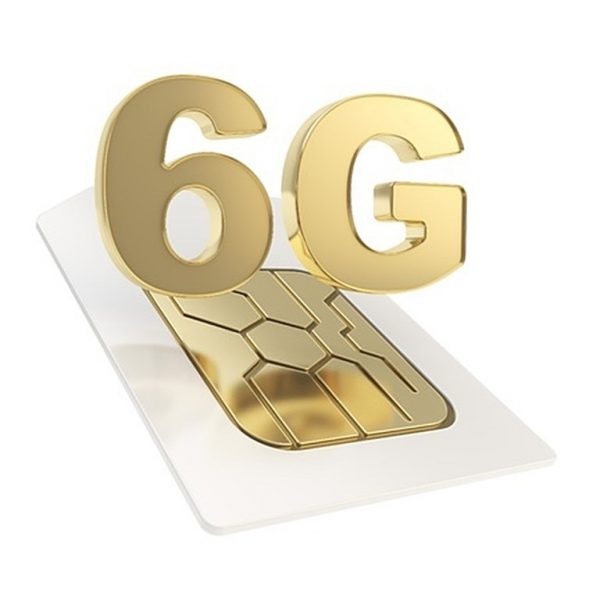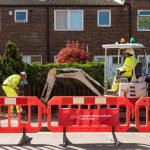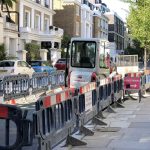The First 6G Mobile Broadband Networks Could Surface in 2028

The Government of South Korea has set somewhat of a marker down for the world this week after announcing that they would aim to bring forward the timetable for launching the first commercial 6G based mobile network, which would see it being introduced from 2028 instead of 2030 (with pre-6G trials staring in 2026).
At present, the 6G standard is still in the early R&D phase, and most people didn’t expect to see the first commercial builds until around 2030. But it is widely expected to be aiming for theoretical peak data rates of up to 1Tbps (Terabits per second) – or 1000Gbps if you prefer – and may be able to harness radio spectrum up to the TeraHertz (THz) bands, while also using AI optimisations, new antenna designs and other changes to improve network efficiency.
However, hitting such speeds in the real-world is a much bigger challenge, due to various reasons, such as the highly variable mobile environment (weather, buildings, trees and device choice all impact signal quality). Not to mention the high cost of needing to deploy an extremely dense and complex network, which is needed to help overcome the huge problems with weak signals and other obstacles (e.g. building lots of new masts tends to upset people).
Advertisement
Lest we forget that mobile operators, such as Three UK, Vodafone, EE (BT) and O2 (VMO2) in the UK, still prefer to harness lower frequencies in order to ensure good coverage and greater economic viability. Higher frequencies are weaker and don’t travel as far, but they can carry more data due to an excess of spectrum frequency.
However, none of this matters in South Korea, which is a country that has often been at the forefront of developing new mobile network technologies. As for the pre-6G technologies they’ll be testing, there’s talk of “Extreme MIMO” being deployed in upper mid-band spectrum (this usually means 6-24GHz or something like that), as well as new AI/Cloud Native core network technology, 100Gbps optical communication component technology per wavelength and methods to “guarantee performance“.
The SK Government appears to be committing almost £400m (625.3 billion won) to their K-Network 2030 Strategy for this and, as part of that, they also hope to secure more than 30% of all 6G patents (they hold 25.9% for 5G) by pre-emptively investing in the next-generation network technology. Not to mention further support for OpenRAN and Low Earth Orbit (LEO) satellites.
At this point the usual fantastical hype-train kicks into full gear and there’s some dizzy talk of 6G being used to help to bring holographic communication out of science fiction and into reality. But for most consumers on this side of the world, strong coverage at a decent speed is still more important than limited coverage at extreme speeds.
Advertisement
Mark is a professional technology writer, IT consultant and computer engineer from Dorset (England), he also founded ISPreview in 1999 and enjoys analysing the latest telecoms and broadband developments. Find me on X (Twitter), Mastodon, Facebook, BlueSky, Threads.net and Linkedin.
« Lunar Digital Saves Equinix’s Manchester MA2 Data Centre from Closure






















































They need to fix 5G first…
Or even 4G
Agreed!
What do you think needs “fixed”?
This is talking about South Korea. They don’t need to “fix” their 5G.
It will be a long time after 2028 that 6G hits the UK, by which time they should hopefully be doing 5G SA correctly.
It’s quite simple, every spectrum auction the government fleeces the mobile operators leaving only a few breadcrumbs for them to make a viable network out of, until that changes expect the bare minimum.
11 years after the launch of 4G, I still get <1 Mbps at times. Often nothing indoors. This country is a joke when it comes to mobile coverage.
The irony that 700Mhz is basically an extension of 4G and is really the only spectrum I’m interested in..
Still, any improvement is good, although why anyone needs more than 200meg on a phone is beyond me.
Saying that, if we reach 2035 and we can install reliable mobile broadband to a home by putting a 2″ cube in the window and get 1gig speeds, I will eat my hat.
“although why anyone needs more than 200meg on a phone is beyond me.”
You do realise that people use 4G/5G at home as well?
It isn’t just mobile phones.
I’m on about the UK, not South Korea, John!
I wonder what the conspiracy theories for 6G will be like…
I need a double bagged tin hat – My house will get cancer and If I go within 100 miles of a mast my nuts will fall off.
probably 😀
Inb4 “we don’t need 6G”
I’m just getting into 5g after replacing my ancient phone. Incredible speeds in Bath today. Just over 1gb… faster than my fttp, its impressive to see it working at these speeds.
Meanwhile in the UK: https://www.speedtest.net/result/i/5498965688
And this is on a good day.
I got this yesterday on 5g in Bath…
https://www.speedtest.net/my-result/a/9076750899
Cripes.. that on 5G is mightily impressive, especially the upload, since that would normally be hobbled by 4G. What bands were you on and where in Bath?
Very impressive. I wish I could get a 20th of those speeds. We have next to no 5G (EE has some patchy coverage outdoors) and only around 6% of properties can get FTTP.
Hi Mark
I was on locksbrook Road. I don’t know re bands . S23 on smarty. I go there a fair bit so will test it again just out of curiosity…
You must be live closer to the nearby 5G mast
8G will solve all the problems…
It’s 2028. I’m half human and half bot thanks to our great Elon. I no longer have any negative thoughts and I enjoy my central bank digital currency. I’m not allowed any free speech only approved thoughts that my government has pre-approved.
O2 still gives me 20mbit even on 6G. Life is good.
Seek help
Probably a bot version of Ad47 aka Adrian.
lmao relax, it was a joke considering all the crazy talk that has been happening here lately.
6G what is that all about
Can’t even get 3G or have no signalor 1 bar many places of wiltshire
Stop upgrading the G’s and start upgrading the masts to accommodate all the new tech
Sounds like someone lives in the middle of no where, probably in Wantage or something. In the bigger parts of Wiltshire (namely, Swindon) there’s 5G pretty liberally deployed by all the providers bar Three and O2; only because their masts are always down too, mind.
And by the time 6G comes about Devon might get 4G.